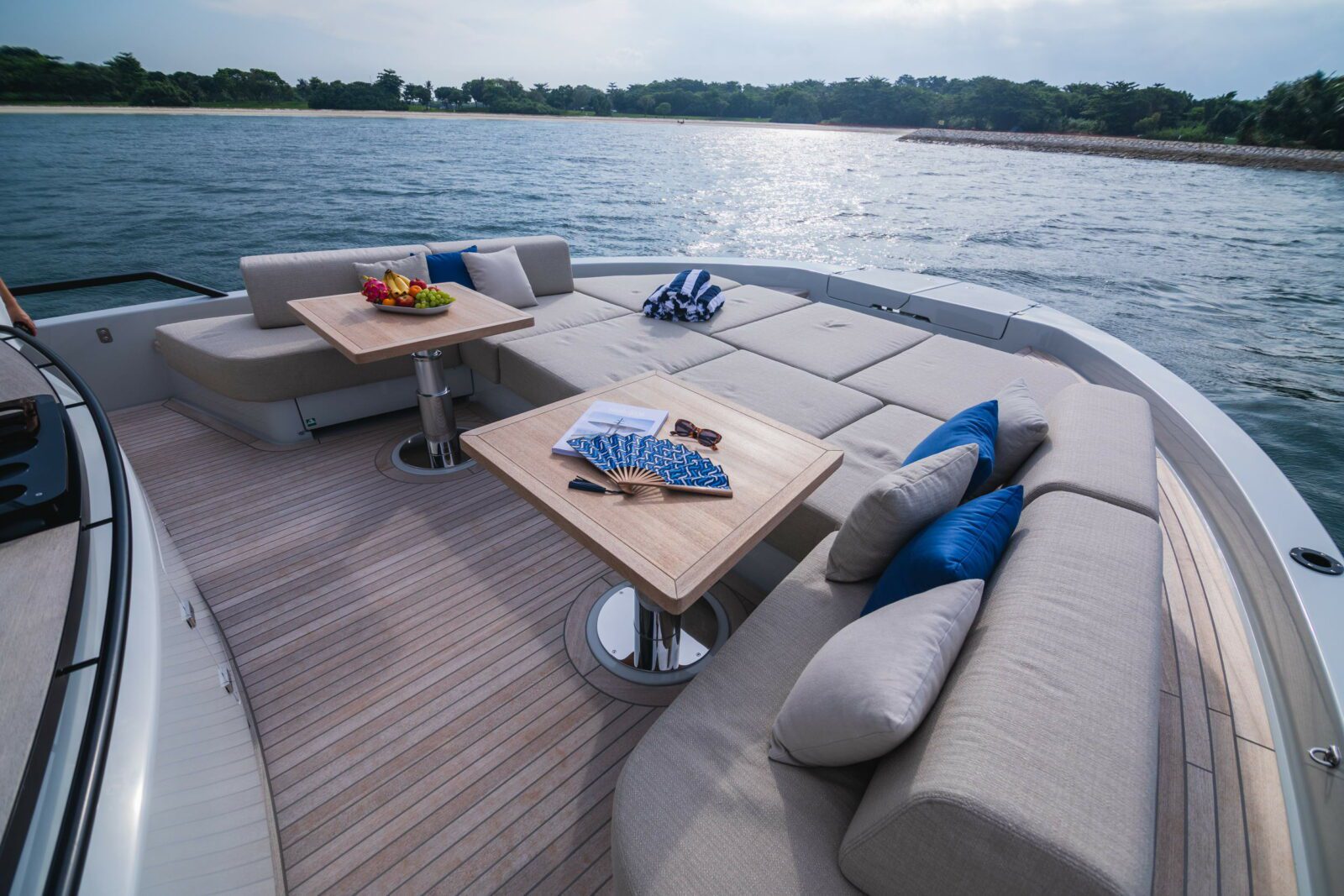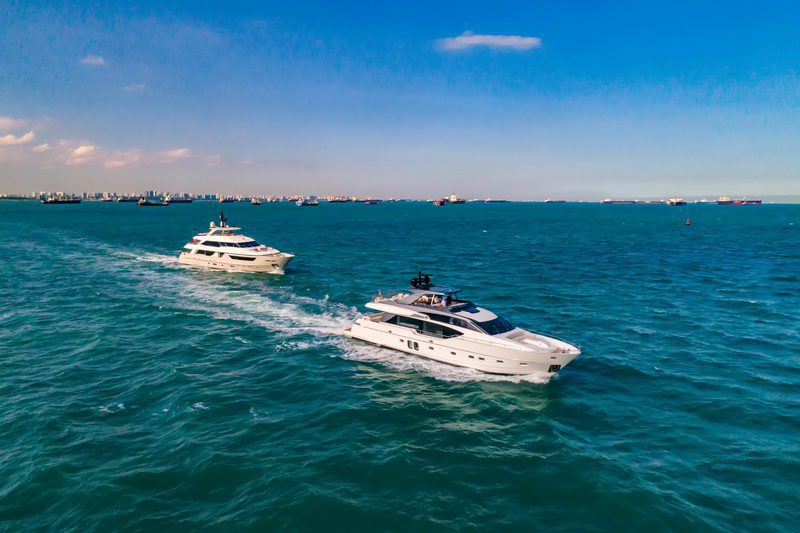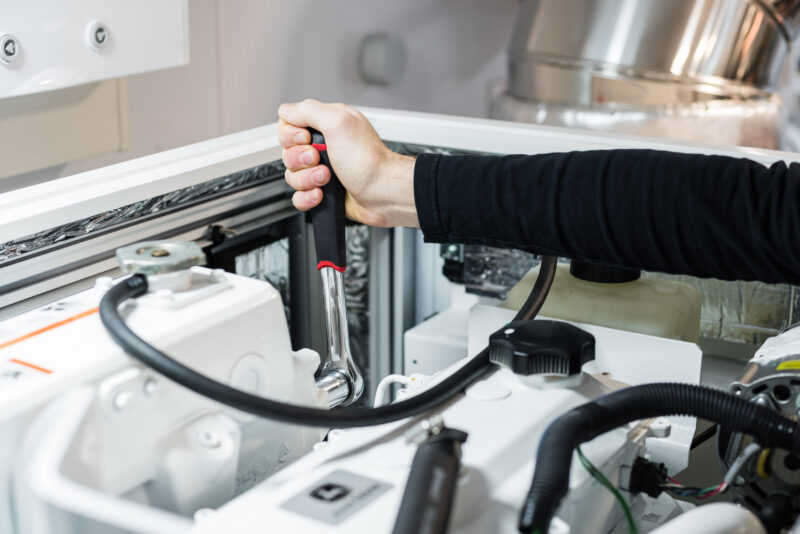


A well-designed, oceangoing yacht is built to withstand a wide variety of weather conditions, up to and including violent storms. While there is no such thing as a completely unsinkable vessel, the way modern yachts are designed makes them very difficult to sink. Of course, an experienced sailor would have no problem deliberately scuppering a vessel, but if you and your crew are determined to stay afloat, you will have a very good chance of achieving your aim in a contemporary yacht, even in the worst conditions. But what is it about all successful boat designs that make them seaworthy? In particular, what prevents a boat from sinking, even when faced with towering seas? For the answers to these questions, we invite you to continue reading below.

SCIENTIFIC PRINCIPLES AND SEAMANSHIP
Today’s blog post is all about what floats your boat, what keeps your vessel afloat when the weather is not as expected.
Generally speaking, two forces are acting on a boat to keep her afloat at any given time:
In addition to excellent planning and organisational skills, you will need to have practical yachting skills too. For example, to minimise the chances of water coming over the sides of your vessel in stormy weather, you should always steer into the waves. If you are aware of and always follow sailing best practices, you’ll be better able to stay out of trouble at sea.

Once you have purchased a yacht or chartered a seaworthy vessel, there is not very much you can do about the first force, except to avoid increasing the total weight of the boat any more than is strictly necessary. As far as the second force is concerned, however, you have a very big part to play. The greater your seamanship, the more finely honed your sailing skills, the easier you will find it to steer a yacht through stormy seas. Ultimately, it is a combination of Archimedes’s principle and your sailing skills that will keep a yacht afloat in rough seas.
CONTACT US
If you would like to charter or buy a yacht in Asia, please don’t hesitate to contact us. As a leading brokerage in the area, Simpson Marine is ideally placed to help you acquire a vessel that is not only seaworthy but beautiful to behold and supremely comfortable. We handle the sale and charter of all types of luxury yachts, including brand-new and previously owned vessels. Whatever kind of boat you would like to sail in Asia, we can help you acquire one at a competitive price.
11th March 2024
11th March 2024